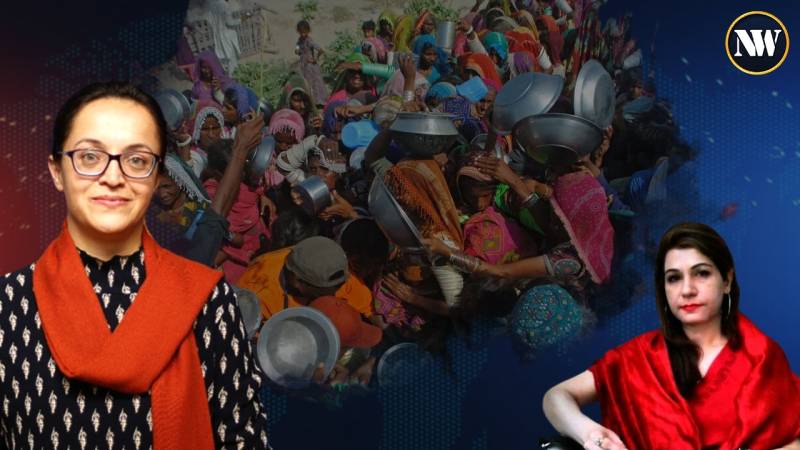In a recent interview with Dr. Neelam Nagar, Director of the Center for Strategic Perspective at The Institute of Strategic Studies, we delve into Pakistan's looming food insecurity, analyze the root causes, and explore potential solutions to mitigate the impending crisis.
Pakistan currently ranks 99 out of 121 countries on the Global Hunger Index, signifying a serious level of food insecurity. A whopping 36.9% of Pakistanis are considered food insecure, and an additional 18.3% are facing severe food shortages, as per the World Food Programme's July 2023 report. The Integrated Food Security Phase Classification places Pakistan in phase four, indicating an acute level of hunger.
Several causes can be attributed to this calamity. Firstly, Pakistan's food crisis is intimately tied to the global food system, which has undergone significant changes. The neoliberal economic model has failed to address food security adequately, with developing nations like Pakistan bearing the brunt. In addition to that, despite being an agrarian economy, Pakistan has transitioned from being a wheat exporter to a net wheat importer. The WTO agreements and restrictions on subsidizing agriculture have left Pakistan dependent on wheat imports from developed countries, exacerbating food security concerns. Moreover, climate change has also become a fundamental threat to agricultural productivity in the country. Frequent floods, extreme weather events, and water scarcity challenge crop production and increase food insecurity. And with a burgeoning population, Pakistan needs to produce more food to meet the demand. But of course, this itself poses a considerable challenge given the limited cultivable land and climate constraints.
Food insecurity is not just a matter of hunger; it can lead to broader security issues. Dr. Nagar emphasizes that food insecurity could potentially escalate into law and order problems. Poverty and hunger can lead to social unrest, increase crime rates, and breed extremism. Recent incidents during food distribution schemes are a testament to how desperate circumstances can disrupt societal harmony.
When carving out paths for sustainable solutions, Pakistan needs to rethink and advocate for reforms in the global food system to ensure fair access to food resources. This includes addressing subsidies in developed countries that impact global food prices. Additionally, the government should prioritize agriculture, promote sustainable practices, and invest in research and development to improve crop yield and resilience against climate change. Ensuring access to nutritious and culturally appropriate food provides another front. Policymakers should focus on providing a balanced diet to the population. As for climate resilience, the government must develop strategies to make agriculture more climate-resilient. This includes investments in irrigation, drought-resistant crop varieties, and disaster preparedness.

